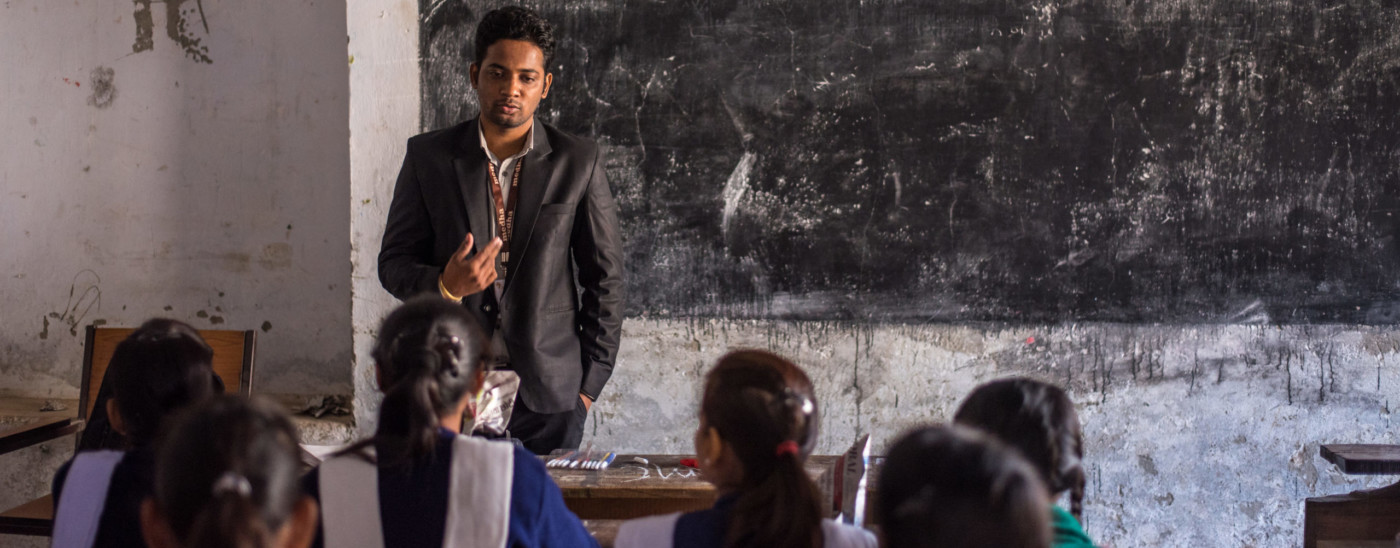
Teaching with the beginner’s mind
“Tomorrow, our class will learn how an electric current works!” said my school-aged daughter one day. As she spoke, I noticed her eyes sparkled with excitement, curiosity, and joy. I tried reciprocating her excitement but soon realized I couldn’t match hers!
My next thought was whether her Physics teacher, who has been teaching the same topic for 20 years, batch after batch, shares the same enthusiasm as hers? What was the teacher’s state of mind? Was she still open to new ideas and possibilities on the topic?
“In the beginner’s mind, there are many possibilities, but in the expert’s, there are few.”
Shunryu Suzuki
Sho Shin, or “the beginner’s mind,” is a concept rooted in Zen Buddhism. It refers to the attitude of approaching situations with an open and fresh perspective, much like a beginner would. “Sho” means beginner or novice, and “Shin” means mind or heart.
In Zen practice, the beginner’s mind is considered essential because it allows practitioners to approach meditation and self-discovery without being hindered by fixed ideas or judgments. It allows one to experience things as they truly are, without the limitations of past experiences.
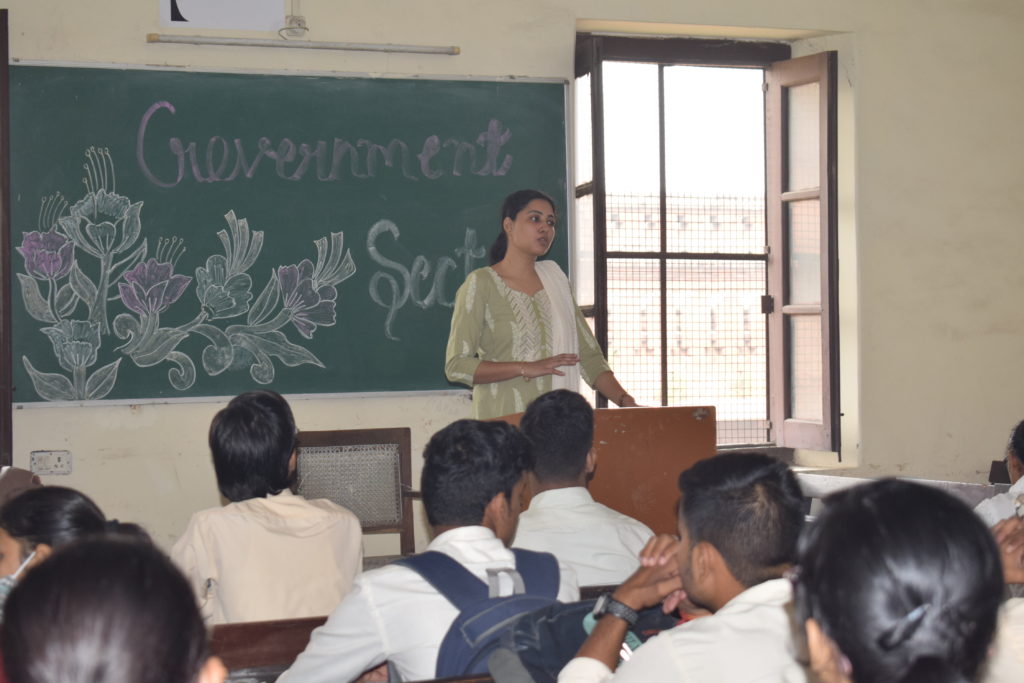
An unconventional anti-thesis
The modern education system is primarily based on the “mechanistic” worldview that evolved during the modern industrial age. Scientific and mathematical, it relies heavily on the “analytic” method: breaking up thoughts, concepts, and problems into smaller pieces and arranging them logically.
However, the analytic method often proves to be a reductionist approach, that fails to see and appreciate the “interconnectedness” between different disciplines. It makes learning an individual quest to becoming an “expert” where, quite opposite to the beginner’s mind, one remains closed to new ideas and possibilties due to a false sense of authority over a field of knowledge.
In the current education system, learning has become an individual quest to becoming an “expert”.
Teaching and learning, driven by the “expert mindset”, generate arrogance and fatigue in the teacher (expert), while creating withdrawal and boredom in the learner. This is quite common in the classrooms of our schools and colleges. It wouldn’t be wrong to say that our current education system kills the “beginner’s mind” in teachers.
Here’s where the beginner’s mind can be applied to teaching and learning.
At Medha, we have been helping teachers, instructors, and other college faculty become better educators and mentors to their students. We help them improve students’ learning by integrating experiential and group activities in classroom teaching.
Over time, Sho Shin has become Medha’s central philosophy when approaching teachers’ capacity building, as it promotes openness, reflection, student-centricity, collaboration, and a lifelong commitment to learning among educators.
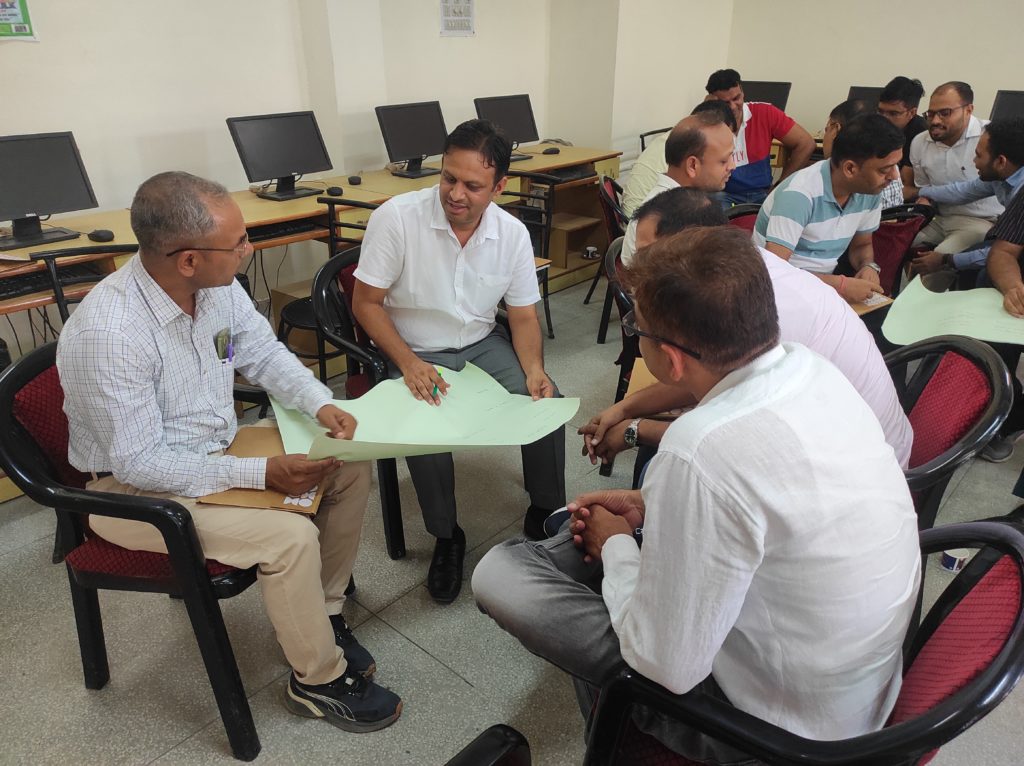
Teachers practising Sho Shin
Imbibing Sho Shin starts with the teacher becoming a learner and a reflective practitioner. When a teacher cultivates the beginner’s mind, it profoundly impacts their teaching practice and learning environment, creating meaningful shifts:
Embrace Continuous and Lifelong Learning
Teachers with a beginner’s mind approach their teaching practice as a continual learning journey. They seek opportunities for professional development, explore new teaching strategies, and stay updated with current research and best practices in education. They continually adapt their teaching methods.
Such teachers also instill in students an understanding that learning extends beyond the classroom and throughout their lives – to develop a love for learning and seek personal growth outside of formal education, too.
Reflective Practice on Teaching & Learning
Teachers practicing Sho Shin regularly reflect on their teaching practices. They critically examine their instructional approaches, assessments, and classroom management techniques. By reflecting on their successes and challenges, they assess their impact on student learning, identify areas for improvement, and make adjustments.
They also encourage students to reflect on their learning experiences, which helps students become more aware of their learning process.
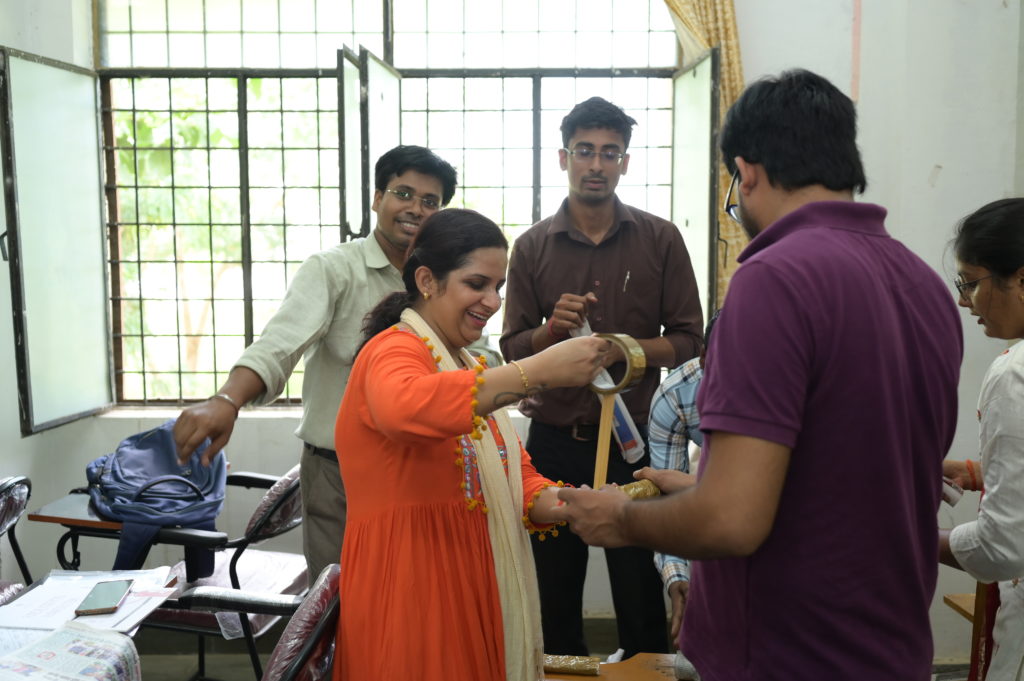
Openness to Novelty & Embracing Change
With a beginner’s mindset, teachers are more willing to question their existing practices and explore alternative approaches to teaching. They are receptive to feedback from colleagues, administrators, and students, actively seeking opportunities to collaborate and learn from others.
An open mind allows them to empathize and thoughtfully respond to the evolving needs of their students while encouraging a culture of curiosity, criticism, and experimentation.
Emphasize Student-Centric Teaching
Teachers with Sho Shin put the students first. They better understand the students’ challenges, perspectives, and individual needs – tailoring their instruction to meet students’ diverse learning styles, interests, and backgrounds.
With the ability to consider different perspectives in the classroom, such teachers foster inclusivity. They create opportunities for engagement and hands-on experiences. In this way, they create a safe space where students feel comfortable enough to make mistakes and learn from them, develop resilience, and a willingness to take risks.
Integrating Sho Shin into 21st-century skilling
There has been an increasing focus on delivering 21st-century skills to students. These skills refer to the attitudes, values, and work habits that are critically important to succeed in today’s world. Several related terms—like applied skills, interdisciplinary skills, transferable skills, and soft skills, among others—are also widely used in reference to the 21st-century skills.
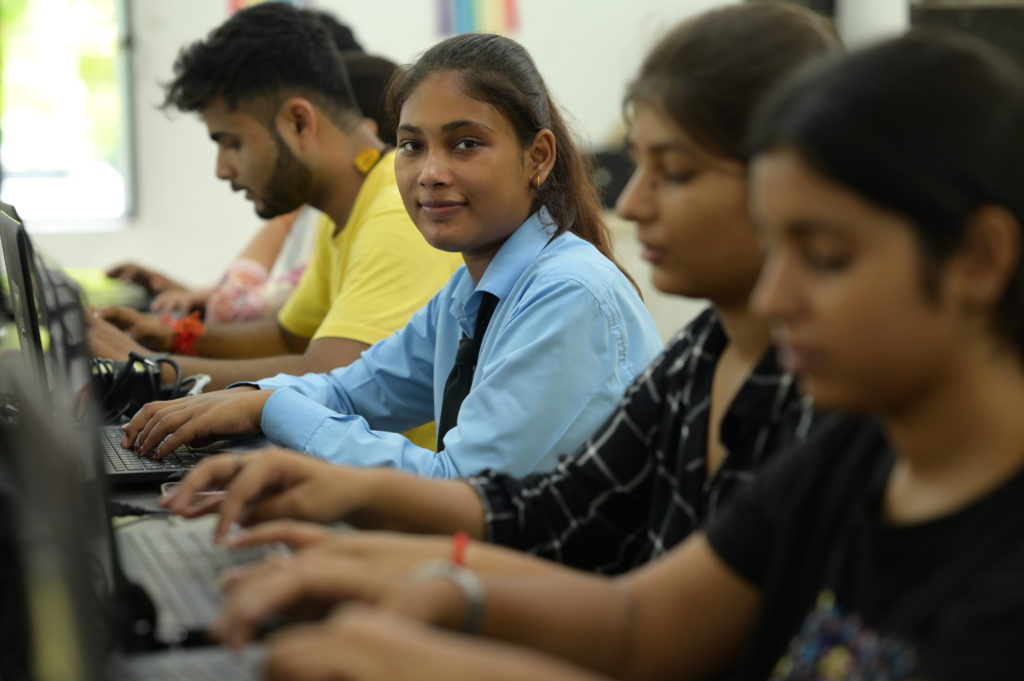
However, a challenge that the conventional education system faces today is how we transfer these skills to students, i.e., how we prepare teachers who effectively build these competencies in students, and the appropriate methodology to do so.
Academics, educational experts, and reformers fully understand that 21st-century skill-building cannot happen in a conventional classroom setting. We need an open, experimentative, reflective, cross-disciplinary, experiential, and work-based learning environment. Above all, we need teachers who embody these traits and approaches to learning and teaching instead of the conventional “expert” mindset.
In our experience, embracing Sho-Shin has helped teachers break that “expert” mindset and make more meaningful shifts toward student-centric education. Our hope is that as the government education system embraces this approach, we might unlock the key to young people building 21st century skills at scale.